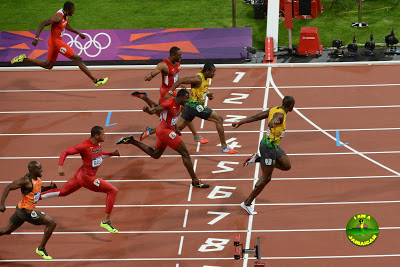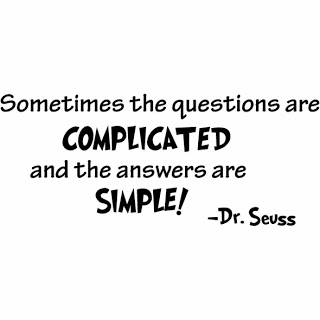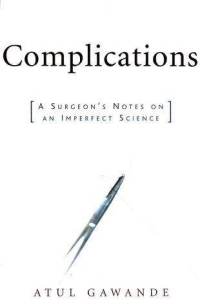Hunger don’t give a sh*t

Last weekend I had the distinct privilege of being treated to a phenomenal meal at a Brazilian Barbeque restaurant. I don’t know if you’ve ever been to one, but it. Is. Amazing. Imagine if you will, a coaster with a red and green side. Flip the coaster to green and within minutes, servers carrying one of 9 types/cuts of meat on swords arrive to offload sizeable amounts of meat onto your plate. As much as you want until you flip that coaster to red. That is a crapton of meat. I had to flip my coaster to red out of surrender at one point because they just kept coming and I could not keep up (don’t worry, I did flip it back to green after I cleared my plate.)
Point being that if there was actually a medical condition and not just a colloquial term known as a “meat coma”, I would have been in one. I have no idea how many calories that meal was, but it was a LOT. Read More...
You don’t add higher octane gas to the house that’s on fire to put it out.

The World Health Organization’s definition of health, which I had to memorize in the first month of medical school, is, “The state of complete physical, mental and social well-being and not merely the absence of disease or infirmity.”
Personally, I think this is ridiculous because it’s basically tautological. The term “well-being” is essentially synonymous with “health”. In fact, the Merriam-Webster dictionary defines “well-being” as, “The state of being happy, healthy or prosperous.” Way to go, 1948 WHO’er’s. It’s like looking in the dictionary for the definition of “happy” and seeing “not sad” and then looking up “sad” and seeing its definition as “not happy.” (Flashbacks to being the child of immigrant parents inserted here. And yes, I was a weird kid and yes, my parents will tell you that.) Read More...
How many sprinters does it take to change a lightbulb, or what about important but not significant?

I often have discussions with non-methodologists about statistics and research methods. What can I say, it’s what I do. Statistics is one of those things that everyone has to learn, but most people feel they just don’t understand. So, instead of trying to understand it, they create hard-and-fast rules for themselves to get around it. It’s like chronic double-clickers; you know, that one person you know at work or in your family that double-clicks EVERYTHING, and doesn’t know how to right-click? Generally, it’s people who don’t understand, or aren’t comfortable with computers. They know that some things require double-clicks and it seems to work most of the time, so instead of figuring out that hyperlinks only need one click, they just double-click everything. And they use the menus for everything, including cutting and pasting, because they find CTRL-C and CTRL-V to be too advanced, and even after you show them several times that, “Hey, look how much faster it is to do it this way!” they say something like, “That’s too complicated for me,” but won’t relinquish the mouse or keyboard to you, and then still complain that, “It takes forever to do that on a computer.” And no, this is definitely not my dad. In any way whatsoever. In the research world, it’s similar–people who ONLY use ANOVAs, or rely on normality statistics to figure out if a distribution is normal (just graph it!) for instance…but I’m getting off topic.
There is the argument that statistics limit progress, or that the requirement for something to be statistically shown is restricting because there can be small, but important effects in small populations, therefore making it mathematically very difficult to “obtain” a p-value less than 0.05. Read More...
Post hoc ergo propter hoc (Or, does shit happen because Zeus is angry?)

I’m sitting at Equinox on 44th Street (Thanks, Equinox for letting me work out at another gym other than my own in this mess!) writing this because I have to wait another hour for everything I own to be recharged (thanks, Sandy). However, it’s amazing what pops into one’s head in silence, darkness and no Internetz. Unfortunately, it also means no actual study review, since I can’t seem to reliably get online (that, and I’m feeling a bit lazy, so someone send me a link, eh?)
In case, you haven’t figured it out, my life in on hold while they try to restore power to my area of Manhattan. One of the hospitals I work at has actually evacuated all the patients, and the other main one I work at is running on emergency power only (no labs, no computers, minimal lights). Read More...
Everything I needed to know as a physician about weight loss, I learned before grad school.

When confronted with a controversial topic online, I don’t like to write gut-reaction blog posts. I’ve been digesting this one for a while (perhaps too long as the hype seems to have settled considerably and the wave has all but passed). My perspective on weight-loss, fitness and medicine is somewhat unique. Regardless of whether it’s considered reconstructive or “cosmetic”, patient come to see me not only for functional problems, but aesthetic ones as well. In my world, the distinction between form and function is not a sharp line. Every “reconstructive” surgery is an aesthetic one, or at least, has an aesthetic component. While I don’t necessarily get a lot of questions about diet and heart disease, you can bet that if it has to do with fat loss or appearance and diet/activity, I’ve gotten the question in some shape or form.
So when posed with the question, “How much should a physician know about nutrition and fitness?” I can’t help but retort with the question, “How much does anyone really know about nutrition and fitness?” and the more controversial, “How much of the _additional_ information that the purported nutrition and diet ‘experts’ know is really necessary?” Read More...
Don’t fix what isn’t broken

I’ve talked about information overload before, as well as information dieting (yes, before the book came out.)
Today while I was changing in my gym, I overhead two guys talking. Both were built like brick you-know-what’s and neither (though fully clothed in workout gear) looked “fat-big”. Read More...
Complications

I was going to write an opinion piece on physicians’ roles in fitness and nutrition as my first post returning from study-exile, but I’m going to write about something way more personal.
As you may or may not know, I wrote the equivalent of my board exams earlier in May to certify as a plastic surgeon. I got my results back this week and I didn’t pass. Read More...
Screwed if you do, screwed if you don’t: People don’t want to read what they don’t want to hear

This WOULD be a catastrophe. This week, I was asked to write a commentary for Fitocracy on what has now become known as the “Red Meat Will Kill You” Study. The fallout in the blogosphere has been pretty dramatic (and by dramatic, I mean drama-filled and theatrical). There have been a few well-written, thoughtful commentaries, but by far, the bulk of criticism has been the general “correlation, not causation” crowd. While I think this is, by and large, a HYUGE step forward in general research literacy, it also makes me wonder if it’s just another sign of polarized, blinded thinking.
There is a fundamental difficulty with measuring long-term outcomes that are distantly removed from single-point events, and continuous repeated exposures. The three mainstream ways to get at the question of, “Does X make you live longer/shorter?” are: Read More...
Moment of weakness, act of strength

I’m in what is probably the most stressful period of my life right now, studying for my Canadian board exams. This means that I’m letting my “diet” slip to cope. The other day, while I feeling sorry for myself, I bought a bulk bag of chocolate mini-eggs. We’re not talking the package that you can hold in one hand; we’re talking the package that basically has a handle.
I’m not so far over the edge that I would eat a whole sack of chocolate eggs in one sitting yet. Give me a few weeks. But after a few handfuls, I realized that I had succumbed to a moment of weakness and that eating (eventually) this bag of delicious chocolate eggs really wasn’t in my best interest. There’s coping (a small package of chocolate eggs), and then there’s overcompensation. Read More...
Burn the boats: Why you’re going to fail. Or not.
 I’ve been studying and reading health research for decades, and this post is just a bit of my biased gestalt on the state of affairs on obesity, obesity research and the new hope that arises within a TON of people every January.
I’ve been studying and reading health research for decades, and this post is just a bit of my biased gestalt on the state of affairs on obesity, obesity research and the new hope that arises within a TON of people every January.
The preponderance of obesity research indicates that most of you will fail at achieving your goal of weight loss this year; and that of those of you who succeed at achieving the goal within this particular year will ultimately fail because the data generally shows that the weight comes back, resulting in a net effect of zero. What we don’t fully understand still, is why this failure happens; and I’m not sure that we’re going to truly unearth it anytime soon enough to make a difference in your resolution this year. Read More...
